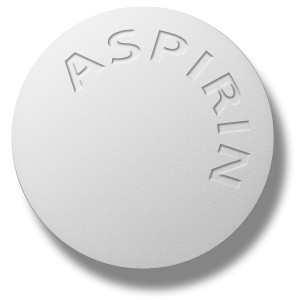 People have asked me if eating sweet desserts or hamburgers is bad for the health if the rest of their diet is good - with lots of fruits, vegetables, whole grains, legumes (beans), and nuts (much like the Mediterranean diet). My sense over the past few years of looking at the research is that one should look at the overall diet, and that a "perfect diet" all the time is pretty darn hard to achieve, if not impossible, for most of us. So this new research looking at gut bacteria and "chemical fingerprints of cellular processes" (by looking at stool and urine samples) of people eating different diets (vegan, vegetarian, omnivore) was reassuring. The findings suggest: make sure to feed your beneficial bacteria with a healthy diet like the Mediterranean diet (lots of plant-based foods), and then some deviation (cookies! steak!) is OK.
People have asked me if eating sweet desserts or hamburgers is bad for the health if the rest of their diet is good - with lots of fruits, vegetables, whole grains, legumes (beans), and nuts (much like the Mediterranean diet). My sense over the past few years of looking at the research is that one should look at the overall diet, and that a "perfect diet" all the time is pretty darn hard to achieve, if not impossible, for most of us. So this new research looking at gut bacteria and "chemical fingerprints of cellular processes" (by looking at stool and urine samples) of people eating different diets (vegan, vegetarian, omnivore) was reassuring. The findings suggest: make sure to feed your beneficial bacteria with a healthy diet like the Mediterranean diet (lots of plant-based foods), and then some deviation (cookies! steak!) is OK.
The researchers found that while the kind of gut bacteria dominating were different among the groups (vegan, vegetarian, omnivores), they also found that eating a lot of fiber-rich foods, such as fruit, vegetables, and legumes (typical of a Mediterranean diet) is linked to a rise in health promoting short chain fatty acids (SCFA). Yes, levels of trimethylamine oxide (TMAO) (which is linked to cardiovascular disease) were significantly lower in vegetarians and vegans than they were in those of the omnivores. But the more omnivores closely followed a Mediterranean diet, the lower were their TMAO levels.(Which is great!). As the researchers said: "Western omnivore diets are not necessarily detrimental when a certain consumption level of plant foods is included. From Science Daily:
High dietary fiber intake linked to health promoting short chain fatty acids
Eating a lot of fibre-rich foods, such as fruit, vegetables, and legumes--typical of a Mediterranean diet--is linked to a rise in health promoting short chain fatty acids, finds research published online in the journal Gut. And you don't have to be a vegetarian or a vegan to reap the benefits, the findings suggest.
Short chain fatty acids (SCFAs), which include acetate, propionate, and butyrate, are produced by bacteria in the gut during fermentation of insoluble fibre from dietary plant matter. SCFAs have been linked to health promoting effects, including a reduced risk of inflammatory diseases, diabetes, and cardiovascular disease.
The researchers gathered a week's information on the typical daily diet of 153 adults who either ate everything (omnivores, 51), or were vegetarians (51), or vegans (51), and living in four geographically distant cities in Italy....The Mediterranean diet is characterised by high intake of fruit, vegetables, legumes, nuts and cereals; moderately high intake of fish; regular but moderate alcohol consumption; and low intake of saturated fat, red meat, and dairy products. Most (88%) of the vegans, almost two thirds of the vegetarians (65%), and around a third (30%) of the omnivores consistently ate a predominantly Mediterranean diet.
The investigation showed distinct patterns of microbial colonisation according to usual dietary intake. Bacteroidetes were more abundant in the stool samples of those who ate a predominantly plant based diet, while Firmicutes were more abundant in those who ate a predominantly animal products diet. Both these categories of organisms (phyla) contain microbial species that can break down complex carbohydrates, resulting in the production of SCFAs.
Specifically, Prevotella and Lachnospira were more common among the vegetarians and vegans while Streptococcus was more common among the omnivores. And higher levels of SCFA were found in vegans, vegetarians, and those who consistently followed a Mediterranean diet. Levels of SCFAs were also strongly associated with the quantity of fruit, vegetables, legumes, and fibre habitually consumed, irrespective of the type of diet normally eaten.
On the other hand, levels of trimethylamine oxide (TMAO)--a compound that has been linked to cardiovascular disease--were significantly lower in the urine samples of vegetarians and vegans than they were in those of the omnivores. But the more omnivores closely followed a Mediterranean diet, the lower were their TMAO levels, the analysis showed.
TMAO levels were linked to the prevalence of microbes associated with the intake of animal proteins and fat, including L-Ruminococcus (from the Lachnospiraceae family). Eggs, beef, pork and fish are the primary sources of carnitine and choline--compounds that are converted by gut microbes into trimethylamine, which is then processed by the liver and released into the circulation as TMAO.
The researchers point out that SCFA levels can naturally vary as a result of age and gender, and their study did not set out to establish any causal links. But they nevertheless suggest that the Mediterranean diet does seem to be associated with the production of health promoting SCFAs. They conclude: "We provide here tangible evidence of the impact of a healthy diet and a Mediterranean dietary pattern on gut microbiota and on the beneficial regulation of microbial metabolism towards health maintenance in the host." And they add: "Western omnivore diets are not necessarily detrimental when a certain consumption level of [plant] foods is included."

 A report released this week by the Endocrine Society states that the list of health problems that scientists can confidently link to exposure to hormone-disrupting chemicals has grown to include: diabetes, cardiovascular disease, obesity, reproductive and developmental problems, thyroid impairment, certain reproductive cancers, and neurodevelopmental problems such as decreased IQ. This statement (report) is based on the summaries of 1300 studies on endocrine disrupting chemicals (EDCs), and it also adds support to the idea that even
A report released this week by the Endocrine Society states that the list of health problems that scientists can confidently link to exposure to hormone-disrupting chemicals has grown to include: diabetes, cardiovascular disease, obesity, reproductive and developmental problems, thyroid impairment, certain reproductive cancers, and neurodevelopmental problems such as decreased IQ. This statement (report) is based on the summaries of 1300 studies on endocrine disrupting chemicals (EDCs), and it also adds support to the idea that even  A recent post (
A recent post ( Some recent studies looked at aspirin use and cancer and found that consistent use for a number of years (5 to 10 years) lowers the rate of a number of cancers, including colon cancer. However, the longer one takes daily aspirin - then harms start adding up, with a major one being gastrointestinal bleeding. NSAIDs (non-steroidal anti-inflammatory drugs) are also linked to lower rates of various cancers, but harms with long-term use are cardiovascular risks (stroke and heart attack). The first article discusses that many doctors think this lower cancer rate occurs because aspirin and NSAIDs
Some recent studies looked at aspirin use and cancer and found that consistent use for a number of years (5 to 10 years) lowers the rate of a number of cancers, including colon cancer. However, the longer one takes daily aspirin - then harms start adding up, with a major one being gastrointestinal bleeding. NSAIDs (non-steroidal anti-inflammatory drugs) are also linked to lower rates of various cancers, but harms with long-term use are cardiovascular risks (stroke and heart attack). The first article discusses that many doctors think this lower cancer rate occurs because aspirin and NSAIDs  Artificial trans fats in foods are bad for health in so many ways: linked to increased risk of coronary heart disease, atherosclerosis, inflammation, and risk of early death. And even though the FDA is finally phasing out partially hydrogenated oils (because they have high levels of
Artificial trans fats in foods are bad for health in so many ways: linked to increased risk of coronary heart disease, atherosclerosis, inflammation, and risk of early death. And even though the FDA is finally phasing out partially hydrogenated oils (because they have high levels of  Trans fats are commonly used in processed foods to improve taste, texture, and shelf life. Artificial trans fats are found in partially hydrogenated oils and in other ingredients, such as refined oils, emulsifiers, flavors and colors. Even those processed foods that say zero trans fats may contain trans fats - due to a loophole in labeling laws (if it has less than .5 grams per serving, then it can be rounded down to zero - thus allowing the incorrect claim of zero trans fats). Eating a variety of processed foods, each containing a little trans fats, easily adds up to eating a significant amount daily.Trans fats in the diet have long been linked to cardiovascular disease, artherosclerosis, obesity, oxidative stress, and inflammation, but now research finds that it is linked to a poorer memory in middle-aged men under the age of 45. From Science Daily:
Trans fats are commonly used in processed foods to improve taste, texture, and shelf life. Artificial trans fats are found in partially hydrogenated oils and in other ingredients, such as refined oils, emulsifiers, flavors and colors. Even those processed foods that say zero trans fats may contain trans fats - due to a loophole in labeling laws (if it has less than .5 grams per serving, then it can be rounded down to zero - thus allowing the incorrect claim of zero trans fats). Eating a variety of processed foods, each containing a little trans fats, easily adds up to eating a significant amount daily.Trans fats in the diet have long been linked to cardiovascular disease, artherosclerosis, obesity, oxidative stress, and inflammation, but now research finds that it is linked to a poorer memory in middle-aged men under the age of 45. From Science Daily: Once again, research shows that eating lots of fruits and vegetables is beneficial to health - this time because high vitamin C concentrations in the blood is linked to lower risks of developing cardiovascular disease and early death. And it's food that they looked at, not supplements. From Science Daily:
Once again, research shows that eating lots of fruits and vegetables is beneficial to health - this time because high vitamin C concentrations in the blood is linked to lower risks of developing cardiovascular disease and early death. And it's food that they looked at, not supplements. From Science Daily: